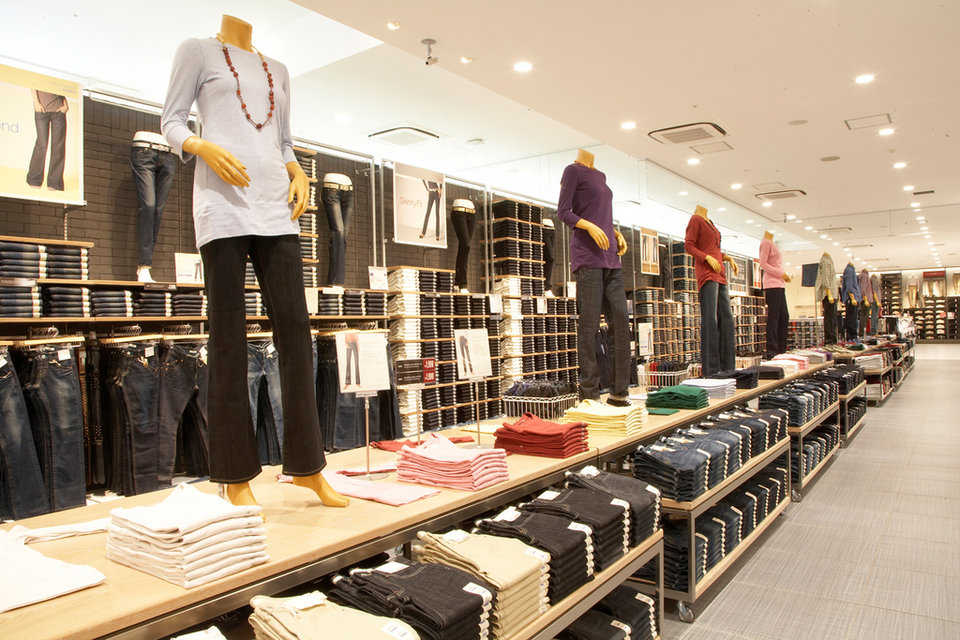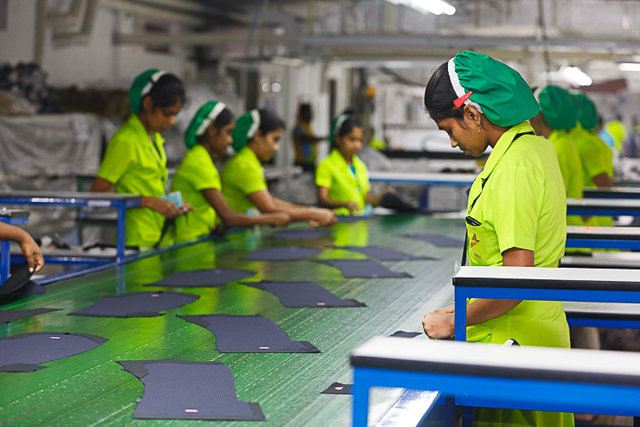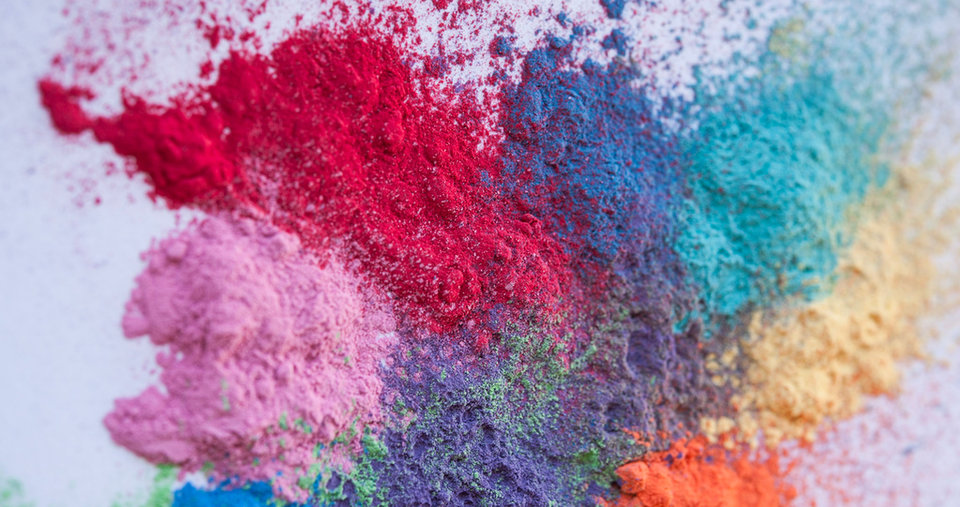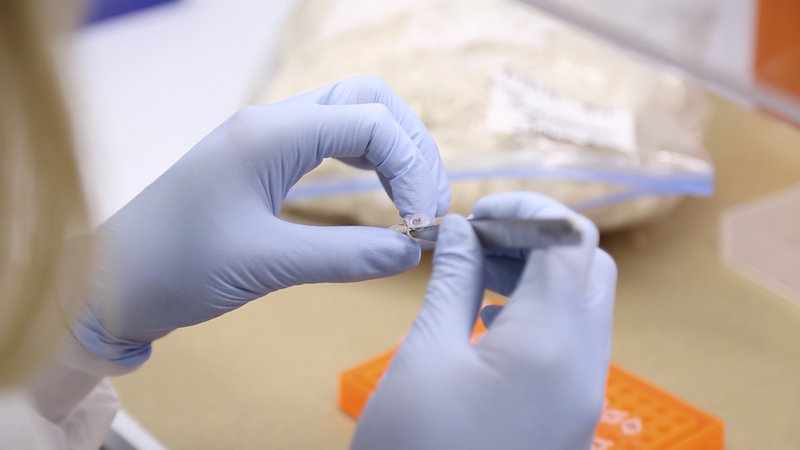The 'New Plastics Economy Global Commitment' was launched in collaboration with UN Environment, which leads the Global Partnership on Marine Litter and its Clean Seas Campaign, and aims to set a clear vision and targets on the issue.
Its vision is for a circular economy for plastic, where plastics never become waste. Targets include eliminating unnecessary plastic packaging; moving from single-use to reuse packaging models; innovating to ensure all plastic packaging is 100% reusable, recyclable, or compostable by 2025; and circulating the plastic that is produced by ensuring it is reused or recycled.
Also among the signatories are Stella McCartney, Marks & Spencer, Walmart, Selfridges and Target Corporation.
Businesses that have signed the pledge will publish annual data on their progress to help drive momentum and ensure transparency.
"At H&M group we are committed to take the actions needed to shift the system towards a circular use of plastic packaging where it never ends up as waste. But there is no single brand that can tackle this industry-wide challenge on its own,” says Cecilia Brännsten, environmental sustainability manager for H&M Group.
“We must act as one voice and the New Plastics Economy Global Commitment is a big step in the right direction, as it will align business and governments on a common agenda and timeframe. Signing this global commitment is also another important step in our journey to become 100% circular and renewable in our business."
Fast Retailing to slash water use in jeans washing
Japan’s Fast Retailing, owner of the Uniqlo casual clothing chain, intends that by 2020 all the jeans made and sold by the group will be produced using a washing process that cuts water use by 99%.
The technology was developed at the FR Jeans Innovation Center, the group's facility for jeans research and development in Los Angeles, California.
It combines advanced washing equipment "utilising nanobubbles and ozone with the skills of jeans designers" to reduce the amount of water in the washing process compared to conventional production methods, the company says.
So far Uniqlo has reduced the amount of water used in the washing process of its Men's Regular Fit Jeans by up to 99%, with an average of more than 90%.
“In 2019 a total of 10m pairs of jeans – almost one-third of FR's annual production quantity – will be made with this new process, rising to 40m pairs of jeans in 2020, saving around 3.7bn litres of water.”
In 2019 a total of 10m pairs of jeans – almost one-third of FR's annual production quantity – will be made with this new process, rising to 40m pairs of jeans in 2020, saving around 3.7bn litres of water.
In addition, the pumice typically used in the washing process has been replaced with an artificial stone that can be used semi-permanently, helping to reduce water pollution.
Lasers have also been introduced to replace the labour-intensive scraping process that has traditionally been done by hand — easing the pressure on workers, the group says.
"We believe that jeans manufactured not only with a focus on design and comfort but under conditions that are environmentally friendly and protect the rights of the workers involved in the production process, are truly good products and that pursuing such jeans production will lead to a brighter future," says Msaaki Matsubara, director of the Jeans Innovation Center.

Project to green Vietnam textile and apparel sector
A project is underway to improve water management and energy sustainability at textile and apparel factories on Vietnam's Mekong and Dong Nai deltas.
An initiative of the World Wide Fund For Nature (WWF) and the Vietnam Textile and Apparel Association (VITAS), it will run until 2020, and focuses on the area around Ho Chi Minh City where more than half of Vietnam's apparel factories are located.
Called 'Greening Vietnam's textile sector through improving water management and energy sustainability,' it will promote better river basin governance and contribute to water quality improvement and sustainable energy use.
The project is part of a wider initiative on 'Driving impact reduction through the textiles value chain' sponsored by HSBC to support the green textile industry in China, Bangladesh, India and Vietnam.
“The textile and apparel industry is one of Vietnam's most economically important sectors.”
The textile and apparel industry is one of Vietnam's most economically important sectors. It contributes 15% of total export value and has a steady annual growth rate of 12% between 2010 and 2017. With 6,000 factories nationwide and employing 3m people, the sector is both economically and socially important for Vietnam.
However, intensive water extraction, use and discharge of wastewater and high energy consumption for water heating and steam generation mean the sector can have significant impacts on water resources and greenhouse gas emissions.
As the industry continues to expand, changes in practice will be required to reduce impacts and adapt to changing conditions; for example, the United Nations predicts that water supplies will suffer a 40% shortage globally by 2030.
"With customers worldwide now more conscious about the environment, this is forcing a lot of global brands to change their operations to include higher environmental and social standards. If we do not change our practice now, Vietnam could lose its competitiveness. That is why this project is so important and timely," explains Vu Duc Giang, chairman of VITAS.
Also key is influencing investors in the Vietnamese textile industry – many of whom are Chinese – to implement more sustainable practices.
Industry-wide audit framework launches in Sri Lanka
Sri Lanka has been selected for the official global rollout of the Social and Labour Convergence project – an initiative that aims to change the way apparel and footwear manufacturers are evaluated by their customers and address the challenge of audit fatigue.
The SLCP has been working to improve factory working conditions by creating a single assessment for all and providing access to more resources and improvements.
The industry spends vast amounts of resources on audits, which are merely duplicative and not necessarily leading to change.

So “to meaningfully improve labour conditions in the apparel and footwear industries, we must change the way we work. We have much further to go to create sustainable remediation, and we collectively believe a converged assessment framework will free up the resources and promote collaboration that will make tangible and lasting improvements on working conditions."
The SLCP pilot project launched in October 2015, and now has more than 180 signatories who have signed off on the Converged Assessment Framework they created together. This multi-stakeholder initiative includes 64 brands such as Nike, H&M, Gap Inc and PVH, along with 38 manufacturers, as well as audit agencies and industry associations.
Sri Lanka was selected as the launch country since its industry body – the Joint Apparel Association Forum (JAAF) – was the first to sign up to the project. 37 factories and 17 verifiers have so far taken part in training, with the support of local suppliers MAS Holdings and Hirdaramani Group.

Dyestuffs made from textile waste set to be scaled up
Italian textile chemical company Officina+39 is preparing to scale-up production of its Recycrom colour powders made from 100% textile waste.
The pigments are made by recycling textile fibres from used clothing and manufacturing waste into what the company says is "the gentlest dye in the industry." It can be used to create long-lasting colours with a natural washed-out look.
The fibres are upcycled through a production process that uses only natural chemicals into a fine powder that can be used as a pigment dye for fabrics and garments made of cotton, wool, nylon or any natural and most artificial fibres and blends.
Recycrom can also be applied using various methods: exhaustion dyeing, printing and spray – with coating now under development. However, in contrast to other dyes, Recycrom is applied as a suspension and not as part of a chemical solution, which means it can be easily filtered from the water – cutting both costs and environmental impact.
Developed in 2016, Recycrom has won several awards, as well as being used in two capsule collections by Italian high-street retailer OVS.
DNA tagging proves successful in denim authentication

Italian textile chemical company Officina+39 is preparing to scale-up production of its Recycrom colour powders made from 100% textile waste.
The pigments are made by recycling textile fibres from used clothing and manufacturing waste into what the company says is "the gentlest dye in the industry." It can be used to create long-lasting colours with a natural washed-out look.
The fibres are upcycled through a production process that uses only natural chemicals into a fine powder that can be used as a pigment dye for fabrics and garments made of cotton, wool, nylon or any natural and most artificial fibres and blends.
Recycrom can also be applied using various methods: exhaustion dyeing, printing and spray – with coating now under development. However, in contrast to other dyes, Recycrom is applied as a suspension and not as part of a chemical solution, which means it can be easily filtered from the water – cutting both costs and environmental impact.
Developed in 2016, Recycrom has won several awards, as well as being used in two capsule collections by Italian high-street retailer OVS.
DNA tagging proves successful in denim authentication
BACK TO TOP